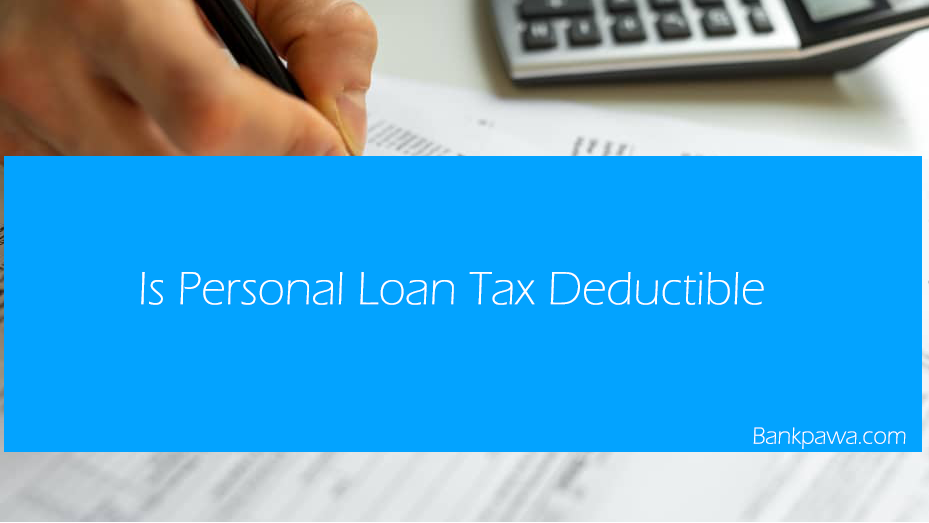All About Personal Loan And Personal Loan Interest

All About Personal Loan And Personal Loan Interest
Personal loans are a more economical way to borrow money than credit cards because, among other things, they typically have lower interest rates. When taking a personal loan to pay for a significant expense, there are a lot of benefits.
A personal loan is a sum of money you can use for many different uses. For example, you may use a personal loan to finance your ideal wedding, pay for home improvements, or combine debt.
You can normally ask for up to $100,000, however, each lender has a different funding cap. This should cover major needs like unexpected medical bills or an urgent house repair.
In addition, funds are usually sent straight into your checking account, allowing you to access them as soon as needed. Online lenders, credit unions, and banks can all provide personal loans.
Over time, you have to repay the money you borrow, usually with interest. For personal loans, some lenders could additionally impose costs.
How a Personal Loan Works
Personal loans are not the same as other installment loans, which are meant to pay for specified needs like homes, cars, or education. Examples of these loans are mortgages, student loans, and car loans.
With a personal loan, you can take out a large amount of money to cover a range of costs and then pay it back over time in installments, or consistent payments. A personal loan could be used, for instance, to pay for:
- Wedding costs
- Funeral expenses
- Repairs or renovations for the house
- Moving costs
- Consolidation of debt
- Medical expenses
- Travel expenses
- Unexpected costs
A personal line of credit and a personal loan are not the same thing. A line of credit functions similarly to a credit card rather than being a one-time payment. You can make purchases using a predetermined credit limit.
Your available credit decreases as you make purchases. After that, you can raise your credit limit by making a payment toward your credit line.
You must apply to a lender to obtain a personal loan. Once more, this might be an online personal loan provider, bank, or credit union. Usually, you would start by filling out an application.
After reviewing it, the lender decides to approve or deny it. You can accept or reject the loan terms if you are accepted. The next step is to complete your loan application if you accept them.
Following that, the lender will fund the loan and give you the money. These could come in the form of a cheque or a direct deposit into your bank account, depending on the lender.
The money is yours to spend any way you see fit once the loan has been funded. After that, you must start repaying the loan following the conditions specified in your loan agreement.
A personal loan default could have a major negative impact on your credit score. If you have a secured loan, you run the danger of losing your collateral or having your lender sue you to recoup the debt.

All About Personal Loan And Personal Loan Interest
Knowing what a personal loan might cost is useful when thinking about getting one. The annualized cost of loan repayment based on interest rate and fees is represented by the annual percentage rate, or APR, for a personal loan.
The total amount of interest you pay throughout the loan can vary depending on the APR and loan period. Let’s say you are approved for a $10,000 personal loan with a 7.5% APR.
The loan has a 24-month payback period. With those conditions, the total interest paid over the loan’s life would be $799.90, and your monthly payment would be $450.
Let’s now say you take out a loan for the same amount but with different terms. You have three years to pay back the loan instead of two, and your interest rate is 6% as opposed to 7.5%.
By those conditions, your interest payments would increase to $951.90 overall but your monthly payment would decrease to $304.
It’s crucial to compare the figures in this manner if you want to spend the least amount of interest on a personal loan or receive the lowest monthly payment.
To figure out what kind of payment amount and interest rate best suits your budget, use a basic online personal loan calculator.
While some lenders do not charge any fees for personal loans, others could charge you for the credit check, the loan origination, or a prepayment penalty if you want to pay off the loan early. There may be a cost for making a late payment.
Where to Look for Personal Loans
Your present bank or credit union can be the best spot to start your search for a personal loan. Your banker can give you advice on the different kinds of personal loans that are out there as well as the borrowing alternatives that you have the best chance of being approved for.
Online lenders also offer personal loans. Online personal loans are available from several lenders. Applying online allows you to receive a decision in a matter of minutes and, depending on the situation, funding in as little as 24 to 48 hours following loan approval.
Examine all the facts when comparing personal loans, whether you do it offline or online. In particular, think about the following:
- Interest Rate Charges
- Terms of repayment
- Limits on borrowing (minimum and maximum)
- Requirements for collateral
Verifying the minimal standards to be eligible for a personal loan is also beneficial. Regarding the allowable debt-to-income ratio, income, and credit score for personal loan approval, lenders may have varying requirements. This can assist you in selecting the loans that most closely match your financial situation and credit history.

Are Personal Loans Tax-Deductible?
Generally, the response is no, tax deductions do not apply to interest paid on personal loans., although there are certain exceptions. While certain loans are tax-deductible, personal loans are not.
You can usually deduct interest paid on business, student, and home loans from your annual taxes, which lowers your taxable income for the year.
The interest you pay on a loan does not lower your tax liability if you borrow money to pay for personal costs or to purchase a car. In a similar vein, interest paid on credit card debt is typically not deducted from taxes.
Your tax burden is not reduced by the interest you pay on a loan that you take out to purchase a car for personal use or to pay for other personal costs. Similarly, it’s usually not tax deductible to pay interest on credit card balances.
Benefit From Taxes on Personal Loan
We’ve found a few situations in which you can get tax breaks on an Indian personal loan. The primary determinant of your eligibility for these advantages is how you plan to spend the loan amount.
All you have to do to be eligible for these benefits is show proof that the money was spent on the intended purpose.
These are the conditions to meet in finding tax deductions on personal loans:
Launching an Enterprise
Under Section 37 of the Income Tax Act, you might be allowed to deduct the interest you pay on a personal loan you take out to invest in or launch a business.

Buying or Building a Home
You may be able to deduct the interest you pay on a loan that you take out to build or buy a house. You are eligible to receive an interest deduction of up to Rs 2,000,000 if the home is used for your purpose. The whole amount of interest is deductible from taxes if you rent it out.
House Renovation
According to Section 24(b) of the Income Tax Act, you are qualified for a tax deduction if you take out a personal loan for house repairs or renovations. You are eligible to deduct interest paid on personal loans up to Rs. 30,000 annually.
Education Expenses
You are eligible for tax deductions under Section 80E if you take out a personal loan to pay for your spouse’s or children’s education. For a maximum of eight years or until the loan is repaid, whichever comes first, this deduction may be taken advantage of.
On the other hand, you might be allowed to write off the interest you spent on your taxes if you utilized a personal loan to pay for company or college expenses.
Even if the loan is not a federal student loan, you can deduct interest paid on any loan utilized for higher education on your taxes, according to the Federal Student Aid website.
Since personal loan lenders rarely give amounts greater than $100,000, you would be better off applying for a small business loan if you need to borrow more money for business needs.
Student Loans: Under some conditions, the student loan interest is tax-deductible, together with origination fees and any capitalized interest.
This applies only to borrowers whose income falls below a particular threshold. For tax year 2022, an individual’s modified adjusted gross income (MAGI) cannot exceed $85,000 (or $175,000 if filing a combined return), according to the Internal Revenue Service (IRS).
A student loan must have been taken out by the borrower, their spouse, or a dependant for interest on the loan to be tax deductible. Up to $2,500.4 can be deducted from the amount of income that is liable to federal income tax.
Even if a person itemizes deductions (as opposed to taking the standard deduction), they are still able to claim the amount, which is categorized as an adjustment to income.
A “qualified” student loan is taken out to cover the costs of higher education, and that is where the interest must be paid.
This implies that the loan pays for books, tuition and other fees, student activity fees, and other charges that the Internal Revenue Service (IRS) deems essential for a student to attend an approved educational institution.
Types of Personal Loans
You can get secured or unsecured personal loans. To be eligible for a secured personal loan, you must provide collateral of some kind.
For example, you may use a physical asset like your boat or car to acquire a personal loan, or you could use monetary assets like a savings account or certificate of deposit (CD). The lender may retain your collateral if you don’t make payments on the loan.
To borrow money on an unsecured personal loan, collateral is not needed. Qualified customers can apply for secured and unsecured personal loans from banks, credit unions, and online lenders.
Because there is no collateral to collect, banks typically view the latter as riskier than the former. That can entail getting a personal loan with a higher interest rate.
What Separates a Personal Loan from a Cash Advance Loan
A cash advance loan is intended to cover short-term expenses, usually those associated with emergencies. Usually, there is a fee and a higher interest rate. Compared to cash advance loans, personal loans often offer longer periods and cheaper interest rates.
Is It Possible for Me to Write Off the Interest on My Child’s Student Loan?
Yes, if your child continues to be eligible for tax benefits. As long as they are not eligible to be claimed as dependents on the taxes of another person, a qualifying kid or qualifying relative may be considered a dependent.
Is Interest in My Work Vehicle Deductible?
You might be eligible to write off the interest on your auto loan if you are a small business owner and use your car for work. You can only deduct the amount of interest that corresponds to the amount of time the vehicle is used for business purposes if you use it for both personal and commercial purposes.
Is Interest on Credit Cards Tax Deductible?
Regretfully, credit card interest is never regarded as deductible from taxes.
Summary
To be eligible for the aforementioned deductions, nevertheless, a few requirements must be fulfilled. A personal loan shouldn’t be out of reach for you financially.
If you received a mortgage credit certificate from a government low-income housing program, you might be eligible to claim a tax credit for mortgage interest, which lowers your tax liability directly instead of your taxable income.
If you’re thinking about getting a personal loan but aren’t sure how much you can afford to pay back, you might think about using a personal loan calculator to figure out how much you can afford each month.
FAQs
Is it good to take a personal loan?
If your credit score is high and your income is steady, getting a personal loan makes sense because you’ll be eligible for a low-interest rate. On the other hand, you will be offered a higher interest rate if you have a low credit score and unsteady employment.
What is the rate of interest on a personal loan?
| Bank | Interest Rate (p.a.) | Processing Fee |
|---|---|---|
| Federal Bank | 11.49% p.a. – 14.49% p.a. | At the discretion of the bank |
| IIFL | 12.75% p.a. – 44% p.a. | 2% – 6% |
| Bank of India | 10.25% onwards | Up to 2% |
| (Fullerton India) SMFG India Credit | 11.99% p.a. onwards | Up to 6% |
How do I write off an unsecured loan?
- If you are unable to repay your debts, filing for bankruptcy will erase them. Any assets, such as a vehicle or home, could be sold.
- A debt relief order (DRO) can be used to write off debt if your debt load is not too high. Moreover, need to possess minimal assets.
- A formal agreement is known as an individual voluntary arrangement (IVA).
Is loan interest tax deductible in the UK?
Yes.
Only if the loan is solely used for business purposes or, if it is a part of your business premises, for property rental, may the loan interest be subtracted from profits.
Which bank is best for personal loans?
| Bank | Minimum interest rate on personal loan (%) |
|---|---|
| Bank of Baroda | 13.15 |
| Punjab National Bank | 13.75 |
| Kotak Mahindra Bank | 10.99 |
| Axis Bank | 10.65 |
And More……













